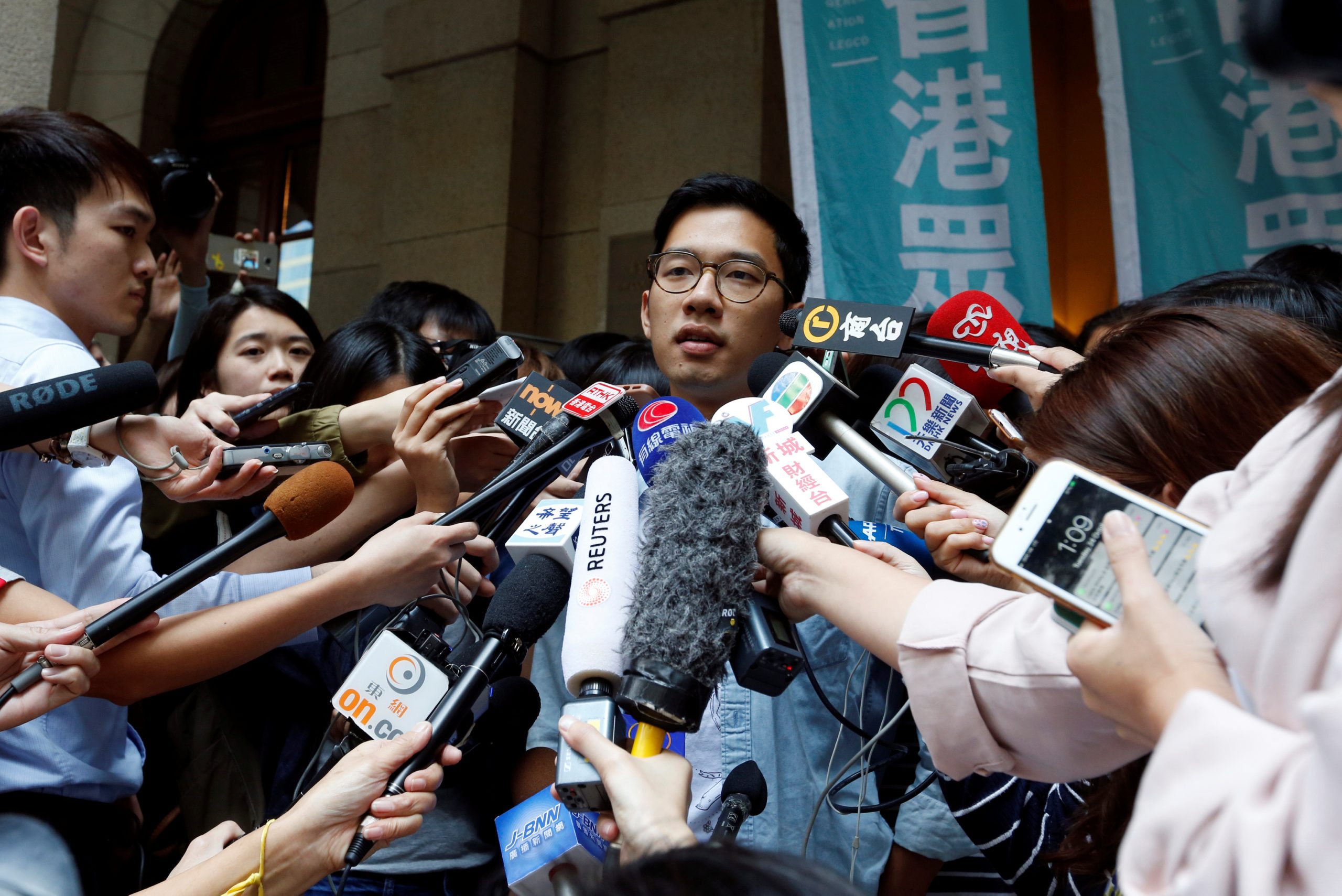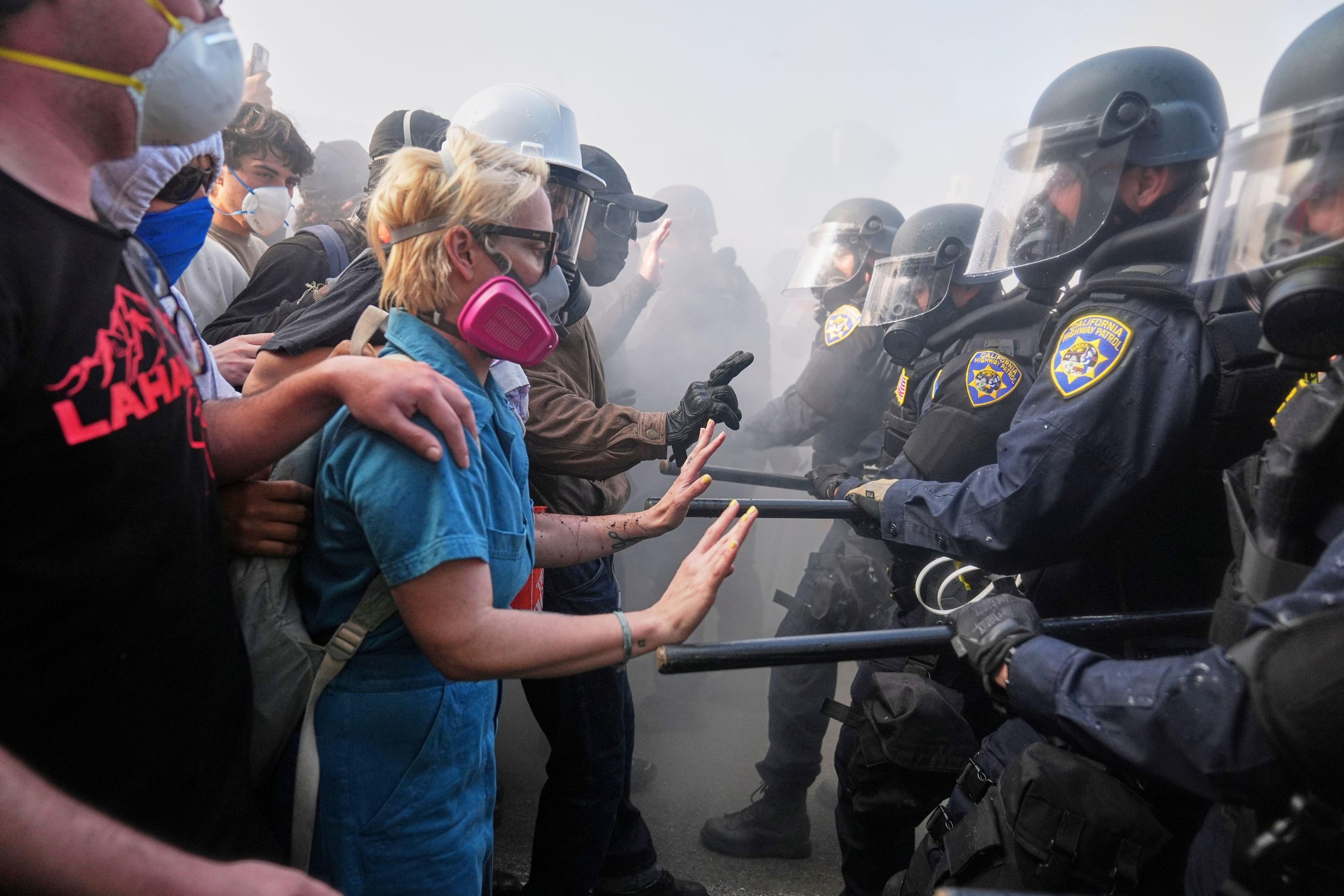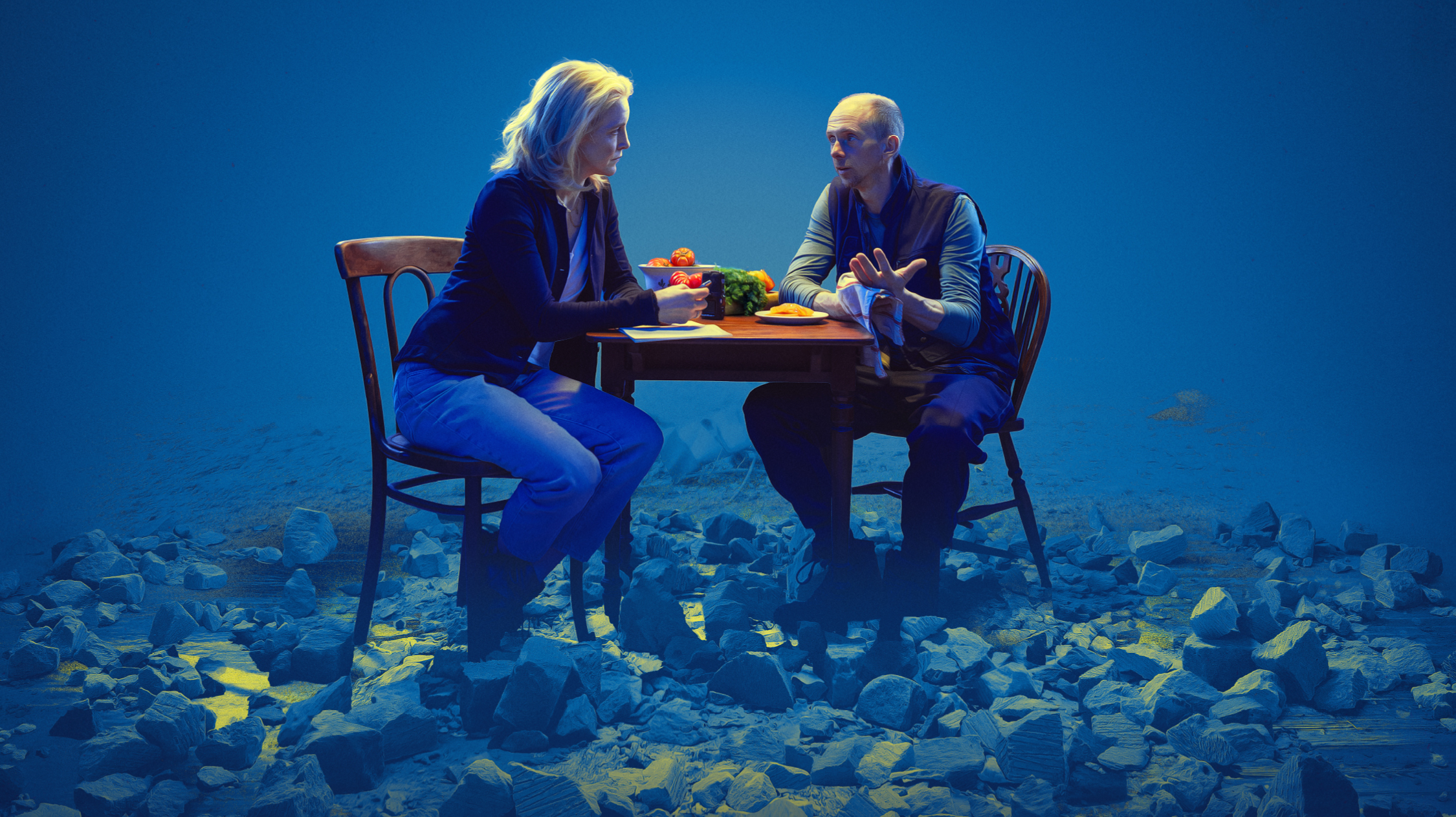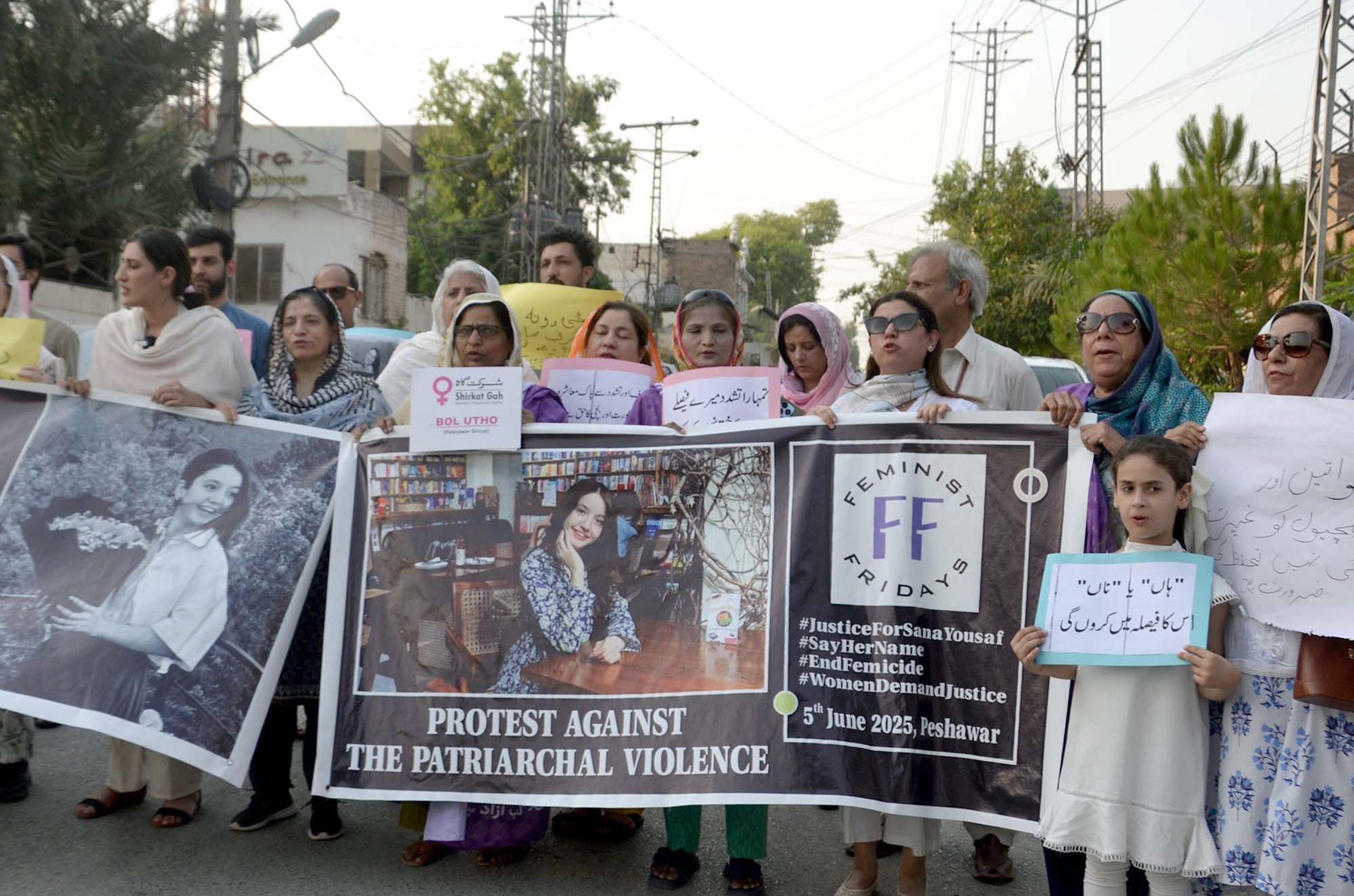Nathan Law has been imprisoned, disqualified from political office and forced to seek political asylum in the UK – all for fighting for democratic rights in Hong Kong, his home city. But, in spite of it all, he remains optimistic.
“As an activist I’m not entitled to lose hope,” he tells Index on Censorship. “I still believe that maybe in a decade’s time I can set foot in Hong Kong, when it’s democratic and free.”
Law, 28, fled to London in the summer of 2020 after the passing of the National Security Law, a draconian piece of legislation that criminalises even a whisper of criticism against Beijing’s rule.
Given the chance, what would he tell Communist Party leaders in Beijing?
“I would say, ‘There is no totalitarian regime that can remain forever. All of them will collapse’, and I’d say, ‘That is your fate if you continue to do what you are doing’.”
Law’s face and name are synonymous with the struggles in Hong Kong. Alongside Joshua Wong, Alex Chow and Agnes Chow, he has helped drive the recent protest movement.
The son of a construction worker and a cleaner, he first became interested in democratic values at secondary school when the late writer and human rights defender Liu Xiaobo won the Nobel Peace Prize in 2010. Liu was serving his fourth prison sentence in China and was unable to accept the prize in person. An image of an empty chair soon went viral, a stark reminder of how bad human rights were in China.
“I grew up in a family that did not talk about politics, did not talk about social affairs,” Law says. Although he studied in a pro-Beijing school, he was “not heavily brainwashed to believe in the Communist Party”. He adds: “I was apolitical. I was not involved.” But when Liu won the prize, the principal of his school publicly denounced the writer in morning assembly.
“It triggered my curiosity because I thought people getting the Nobel Prize are the ones who are good in their field. So how come such a person – a Chinese [person] – would be criticised in that fashion? It really triggered my curiosity and got me to look into the work that he had been doing. He opened up a gate for me to understand all these concepts.”
That gate first led Law to the Tiananmen Square vigil, held in Hong Kong every year since 1989, and then to him leading the 2014 Umbrella Movement (which later landed him in prison on charges of “unlawful assembly”).
After this, Law became the youngest legislator in Hong Kong’s history, a position from which he was quickly disqualified when he modified his oath of allegiance to China during the swearing-in ceremony in October 2016.
In the same year, he founded Demosistō, a pro-democracy political party, with Agnes Chow and Wong.
But time was up when the National Security Law was passed. Demosistō was disbanded, Law was forced out of Hong Kong and Chow and Wong were jailed, alongside scores of others connected to the democracy movement.
Today, dissent is in a straitjacket in Hong Kong. And yet not all have given up fighting. In Law’s recently published book – Freedom: How We Lose It And How We Fight Back – he writes: “Even during this most bitter of times the spirit of ordinary Hong Kong people continues to shine, even if it must do so in the shadows.”
Law lists the people who refuse to have their prison sentences lessened by agreeing to the charges against them and instead “defend themselves in order to narrate their story at the risk of heavy sentencing”. He lists those who attend court hearings to show support to the defendants, those who write letters to the imprisoned and those who advocate for any policy that might remotely challenge the government.
“The hope lies in these people. Even though we are in the darkest time and change is seemingly impossible, people are still doing things because they feel that it is the right thing to do,” he says.
Law might have an admirable sense of hope, but his is not an easy life. He had to publicly sever ties with his family when he moved to the UK and has been unable to talk to Agnes Chow and Wong, too. He misses the people and he misses the place.
“I always dream about Hong Kong,” he says. “You’re familiar with everything. You don’t have to think. Like when you step into the MTR [the subway]. It’s in your muscles, in your memory. You understand everything. You understand all the slang. The background noise with people’s hectic walk, the hectic talk of Cantonese and bus horns, those noises from the stores and from restaurants. It’s just unique.”
Law has been granted asylum in the UK – a move that angered Beijing, which declared him a criminal suspect. Even though he is thousands of miles from Hong Kong, he still has to look over his shoulder. He takes extra precautions: he never mentions where he lives and he takes detours when he leaves and returns home – measures that have come to define the life of China’s dissidents. He simply doesn’t feel safe “because of how extensive China’s reach can be”.
“We’ve got cases like Navalny; the Russian dissident forced to land in Belarus; we’ve also got a lot of cases of Uyghur activists around the world being arrested or extradited back to China. There are a lot of things that can happen to dissidents. It is not a secret that I am almost at the top of the list of national enemies that China portrays, so things like this could happen,” he says.
“On the other hand, I don’t want any of these fears to hinder my activities and my activism. So I will try to be vigilant to protect myself, but I will also try 100% to promulgate the agenda of the Hong Kong democratic movement.”
One of the ways that he wants to do this is through publishing his book. A blend of personal experience and broader context, Law wants it to appeal to as many people as possible and for these people to “act after reading it”.
“I’m an author, of course, but at the end of the day my essential identity is an activist. By definition, an activist is someone who tries to empower people to act in order to precipitate social changes. I intend to appeal to people to be more aware of their own democratic states,” he says.
As for what we can do to help Hong Kong, Law puts it simply: “Get involved. Pay more attention to Hong Kong and to China. Start to look into campaigns that could help, like boycotting the Olympics, supporting political prisoners or even reading news – just supporting the news agencies who produce these fantastic stories for Hong Kong and for China.
“After that, if you really want to be a campaigner that supports Hong Kong then get organised. Find your local grassroots organisation and be a volunteer and try to explain that to your friends and your neighbours.”
It might be the darkest chapter in Hong Kong’s story, but – to channel Law’s optimism – let’s hope it’s not the last.
How I exposed Beijing’s big lie
Young activist Nathan Law’s election to the Legislative Council in 2016 shattered the myth that the people of Hong Kong did not desire freedom and democracy, he says in an extract from his new book
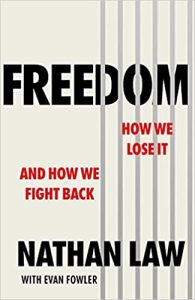 In August 2016, a month before the election, our team were starting to worry. The polls suggested I had little support in the constituency I was running in. Hong Kong Island is a wealthy and generally conservative district, known for electing prominent members of Hong Kong’s professional and elite class – lawyers, public intellectuals and former government officials. To make things more difficult, my constituency happened to have the highest number of elderly residents. It was also an important ‘super seat’ that would return six places in the legislature by proportional representation, so fifteen parties had fielded candidates.
In August 2016, a month before the election, our team were starting to worry. The polls suggested I had little support in the constituency I was running in. Hong Kong Island is a wealthy and generally conservative district, known for electing prominent members of Hong Kong’s professional and elite class – lawyers, public intellectuals and former government officials. To make things more difficult, my constituency happened to have the highest number of elderly residents. It was also an important ‘super seat’ that would return six places in the legislature by proportional representation, so fifteen parties had fielded candidates.
While we were hopeful, our expectations were low. I may have been a public figure, but I was known only as a student activist. Going straight from student activism to the first tier of Hong Kong politics was not easy. I had to adjust my mindset. I was no longer representing students like me, but having to appeal to and present myself as someone who could represent a much broader range of people. I needed to demonstrate that I had the ability to understand the complexity of realpolitik, and accommodate the diverse needs and views of constituents. I also had to convince people that I was able to represent them in the city’s highest chamber.
In the last two weeks of the election, I worked as hard as I could to outline my beliefs and analyse heated debates about policy. I wanted to prove that age, education and experience are not the deciding factors in what constitutes a proper lawmaker: determination, vision and eloquence are what matter most.
The 2016 election saw an unprecedented turnout: 2.2 million voters, 58 per cent of the registered electorate, cast their vote. Despite the constant hectoring of Beijing’s loyalists, the silent majority had spoken, and it was in favour of pro-democracy candidates. A new force had emerged in local politics, with new, progressive localist candidates winning six seats. And I won my seat, by a far greater margin than polls had suggested, to become Hong Kong’s youngest ever lawmaker.
I was so proud of what we had achieved. We had exercised our right to stand for election, and in voting for us the people of Hong Kong had exercised their right to elect representatives who shared their concerns. The legislature may have been designed to ensure a pro-establishment majority, making it more of a debating chamber than a true law-making body. But to be one of thirty-five directly elected legislators still mattered.
My election represented an expression of the limited political rights Hong Kong people enjoyed – an expression of our freedom. I had a democratic mandate and no one in government could claim otherwise. Even if all I could do was be one voice in the chamber, this voice would be heard throughout the city; and for so many people of my generation, and for all those who had voted for me, that mattered.
At twenty-three years of age, I was Hong Kong’s youngest legislator. Often, babies of the House, as the youngest parliamentarians are called in the UK, go on to have long careers in politics. Mine in Hong Kong would be one of the shortest.
Legislative Council members are elected to serve a four-year term. As my team moved into our new offices in the Legislative Council Complex, there was no reason to suppose we would not be there for at least that long. We did our best to make ourselves feel comfortable in room 901. As an activist I had met and worked with many legislators, but to be sitting in the Council building now as one of them felt different. I watched political aides come and go, and my staff hovering busily about, and could not help but wonder if I truly belonged there. Was this the right place for an activist? Could it accommodate us?
Well-known democratic lawmakers stopped by to welcome me. They did their best to make me feel I belonged. Many were politicians and campaigners I looked up to and had worked with during the protests. They had fought hard for a better Hong Kong – for labour rights, civil liberties and for other important freedoms. Still, any pride I might have felt was overridden by the realisation of what I was up against. Though my allies in the democratic camp were capable and respected in the wider community, they were operating within a system designed to ensure they would never have power. And those who did have power would seek to silence and destroy us.
My election had been a terrible loss of face for Beijing and their loyal supporters. It shattered one of their principal lies: that the majority of Hong Kong people are loyal patriots who place the ‘nation’ (meaning the CCP) over local issues and a desire for freedom and democracy. It was a lie that had served the interests of the powerful, from the officials and secret Communist Party members who dominated Hong Kong’s elites to international businesses who had throughout Hong Kong’s history suppressed the will of the people in order to promote so-called stability and a favourable commercial environment. It was a lie that Hong Kong’s last governor, Chris Patten, had bravely challenged by going directly to the people, refusing the assurances of an elite who insisted that Hong Kong people were apolitical. It was a lie that had become increasingly pernicious as Beijing encroached on our freedoms, making democratic representation even more important. And my presence in the Legislative Council, alongside other new and progressive lawmakers, told the world that it was a lie. Beijing would not forgive me for that.
Extracted from Freedom: How We Lose it and How We Fight Back, by Nathan Law, published by Transworld in November 2021
This interview and the extract appeared in the winter issue of Index on Censorship. Click here for more information on this issue

